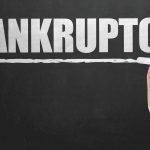Lawmakers have determined that, even if you owe a substantial amount of debt, you are still entitled to protect and retain certain of life’s necessities from the grasp of your creditors. This personal property is classified as exempt property, meaning that you can keep it, even after you receive a discharge of your debts in bankruptcy.
Under New York State Law, effective 1/22/2011, the following is a sample of the types of personal property that are considered exempt: (A) cash, checking or savings accounts, U.S. Savings Bond, stocks, and other marketable securities, tax refunds, household furnishings and appliances, basic wearing apparel and jewelry up to an aggregate maximum total $10,000.00; (B) equity in a motor vehicle up to $4,000.00; (C) $150,000.00 of the equity in your home, co-op or condo (NY Metro area); (E) social security benefits; (F) IRA, 401K and other qualified retirement accounts. In addition, there is also a wildcard provision that allows an individual to use some of the unused portion of the $10,000.00 exemption above (if available) to protect other assets of their choice, such as equity in a motor vehicle that exceeds the $4,000.00 limit, or the right to receive a tax refund.
Claiming certain exemptions will limit your ability to use others. For example, if you are claiming the $150,000.00 homestead exemption, you can now only claim a $1,000.00 exemption for cash, savings and tax refunds.
In addition, for the first time, New York residents now also have the option to elect to claim the Federal exemptions provided under Section 522 of the Bankruptcy Law. The Federal exemptions can be a good option for those individuals who do not own a home or those who own a home with little or no equity. The Federal exemptions are more liberal than the New York State exemptions in that the limits on personal property are slighly higher and are more flexible in terms of how they can be applied to certain property – particularly cash, savings and other personal property which would receive little or no protection under New York law.
The bottom line is that you can walk away from a bankruptcy with much, sometimes all of your cash and other personal belongings.
Special Note about Tax Refunds – The right to receive a tax refund, until it is received and spent, is technically an asset for bankruptcy purposes. If you regulraly receive a large tax refund, you should disclsose this to your attorney at your initial consultation. An expereienced bankruptcy attorney will be able to provide you with guidance and review your options as to how to deal with this issue.
More About Property Exemptions From Our Blog
Wild Card is a “Wild” Success in New York
More New York Renters Likely to Opt for Federal Exemptions
